I watched a fascinating TV program, the other day, about illusions, the inner workings of the brain and perceptual psychology.
I've seen plenty of optical illusions before but presented here were also auditory and touch illusions too. There was even something about the development of wholy new senses.
Since I was small I've been fascinated by perception and would ponder to myself about riddles like "how do you know what colours others see?" We use language as a way of communicating an idea, thought or feeling from one person to another. But in order to do that you need to reach an agreement on what those words mean. Through education and reinforcement from the moment you are born everyone is telling you how the world is. We must start off as a relative open book but everyone we come in contact with teaches us the shared world view of our culture. This is a table, that is a chair, this is how to behave, that isn't acceptable and so on.
Whenever any of us encounter a baby we get eye contact and talk to them. First of all with simple language (cue silly baby voice) 'hello baby, hello baby!' - "you are a cute one, aren't you? Yes!" Every person an infant comes in contact with is reinforcing how the world is, taking a mass of jumbled, interconnected neurons and weaving them into a map that describes the world as we know it. It happens to us and now we do it to others, its how we keep our culture and community together.
So when I see red I have no idea whether you will see blue but call it red. Agreement was reached when you were young that the word red is used when you see a particular colour so that we can communicate and agree regardless of what you actually "see" in your mind. But then perhaps that is the crux of it. How much of what we believe, know and see is our culture that is taught to us and how much is actual reality? Well , we perceive a very narrow part of the electromagnetic spectrum and in quite a narrow way too. Blue or red light isn't actually blue or red, it is made up of photons travelling at extremely high speeds but our visual cortexes see red and blue and we have designed words for these perceptions so that we can agree on what they are. It is this agreement that is reality, it is all of us reinforcing what we agree and what we perceive, through talking and education and learning. That is what our reality actually is.
Some people think that babies actually have a much wider perception than we have and that through this constant reinforcing, that perception is gradually narrowed until they see the world as it has been described to you.
I read somewhere once, about the differences between western and eastern culture and how important language is. Western languages are very object based but Chinese, for instance, is much more about actions and events. This colours how we see the world. Westerners predominately understand the world as made up of things, whereas the Chinese see it as movements from one state to another.
I don't know how true that is, as I am a product of my western upbringing. I can't step out of my worldview to see how others see things but the concept is fascinating nonetheless.
So on this TV programme, I watched, there was this blind guy who loved riding his bike. He had been blind from birth and quite remarkably he had developed the ability to echo locate. He would use his tongue to send out a flurry of clicks and bounce them off things just like a bat or a dolphin. He had honed this skill so he could cycle around and not crash into anything. He said that his brain created a picture in his head and he could 'see' where he was going.
At a university they devised an experiment where they created a belt that would detect the direction of north and give you a little nudge in your midriff whereever it was pointing. After a few weeks of wearing the belt volunteers brains had adpated to use this information, without being aware of how it was happening, to navigate blindfold around a maze.
So it seems the brain can adapt to new types of sensory input, and it uses this information to create models of the world outside without us having to try.
A clip was shown where someone said the word "bah." After seeing him say this the moving image was replaced with the same person saying "fah" but the audio continued to be "bah" but whilst you are watching him speak it sounds like "fah", as soon as you close your eyes (and am not seeing him say "fah" anymore) then you hear "bah" again. It seems your eyes override what you hear with what you see. It is called the McGurk effect. Look it up on Youtube to see what I mean.
They asked the question "is seeing believing?" And the answer came back as "you don't believe what you see, in fact, you see what you believe."
Only 10% of what our brains receive through the eyes makes up what we see. The other 90% is made up of other parts of our brain which are creating a model of what we think the world to be. Illusions fool us because we are unable to get past What is in our heads, how we believe the world to be. The 10% of optical information that reaches us is just that, a small part of what we think we see. So an illusion cannot override what we believe the world to be. Even when we know how an illusion works we are still unable to stop seeing that illusion.
When we dream we can create fantastical worlds and universes full of life and colour and mythical creatures. Every bit as real to us, as our wakeful world, when we are in the midst of the dream. This is that 90% of our visual brain creating a world just for us. There is no light passing through our eyes and yet the world is as rich and as complex as when we are awake.
So where do we get our wakeful world from? Well I come back to my starting point, how that world is described to us by everyone we encounter whilst we are infants.
Belief is a very powerful thing. We are quite convinced that how we see the world is actually how the world is. But with the brain filling in so many of the gaps how can it be. And yet without our strong belief we would likely be insane, unable to piece together our perceptions into a world that it is possible to live in. This strong belief is something we all share, it is just the details of what we believe that leads us to differ.
Our belief feels so strong to us that we feel it is easily possible to get someone else to believe what we believe. "What I believe IS reality, so surely when I tell you about it you will see reality too?" But if what you believe is different to the person you are telling then there reality is different to yours and they think you are the one that has it wrong.
So much energy is expended in this world trying to convince others of the true reality of the world, whilst missing the fact that your reality is only what you believe. If we spent more time worrying about ourselves and not trying to put the world to rights then I think what we share would be a better place. The downfall of the human race is the "I am right" attitude, and the need to educate all others as to where they are going wrong.
Land art, for me, steps outside of all this. I simply sit down and make something without caring whether it is right or correct or is it how it should be. It just is.
Several times I have had it said to me, that a stack like this one is faked: stuck with glue, photoshopped or whatever. This says much more about the people that say that than it does about me. They are unable to believe something may be possible, their assumptions limit what they can achieve, they are held back by the limits they place around themselves. This is their reality, what they believe. Through this belief then that is what they see. A fake picture. But it strikes me that it is an issue of trust that colours everything they do, a sense of entitlement to attention from the world, leads them to assume that if someone achieves something then they must have cheated in some way. A sad way to be, I think. Isn't it much better to believe that anything may be possible? Even if that can't be the case, isn't life sweeter if you at least open your mind to the possibilities? How sad is your world if you have already decided what is and isn't possible before you have even tried? And yet this is the reality for many people.
I believe that everything that's worthwhile in the world should be about just being. Making something, taking a walk, tending to the garden or just watching clouds float by. If you put your energy into trying to convince the world that you have all the answers and if only they would listen a moment, then you could explain it to them and they would understand, then I think you are missing the point.
Which I guess is quite ironic, seeing as I am sitting here doing just that. But then I guess I am lucky that my upbringing allows me to try and see the magic in the world and not to believe that everyone is taking you for a ride and cheating you out of what you deserve. Or even more insiduously, not being a person who has already decided what is and isn't worthwhile to be spending your time doing without having even tried my hand at any of it.
Saturday, December 11, 2010
Tornado Cairn
Subscribe to:
Post Comments (Atom)





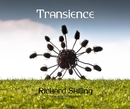
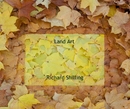
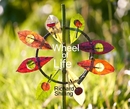
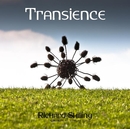
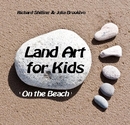
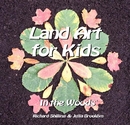

No comments:
Post a Comment